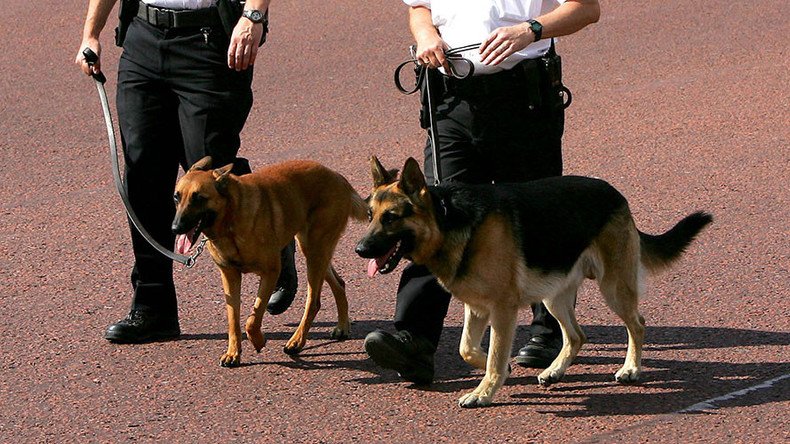An arm & a leg? Body parts should be used to train police dogs, say academics

Left-over body parts from hospital operating tables will be used to improve the training of the police’s corpse-locating cadaver dogs – that’s if a group of academics get their way.
The proposal would see tissue left over from amputations and hip replacements given to police officers and forensic scientists for use in training exercises and on US-style body farms – with patients’ permission, naturally.
Body farms are licensed in the US to allow crime scenes to be recreated with, literally, deadly accuracy. No such provision exist in Europe, an issue some leading academics want to change.
It would allow scientists to better recreate and examine decomposition and police officers to practice tracking lost bodies with human rather than pig tissue.
Dr Anna Williams, a forensic anthropologist at the University of Huddersfield, said it is time to dispense with any hang-ups and to better prepare investigators for the real thing.
“We do not expect surgeons and doctors to learn their skills on pigs because we know there is no substitute for the real thing,” she told the Telegraph newspaper.
She said voluntary body part donations could be a kind of “half-way house” between the US-model and the European method.
“It could be done with something as simple as human teeth that have been extracted. If dogs have access to real human material they can be trained with much more confidence,” she said.
A second University of Huddersfield academic backs Williams’ view.
Lorna Irish told the Telegraph: “Cadaver dogs are incredible in their ability to locate human remains even under water but things could be improved if their training was more specific.
“At the moment they train using pig carcasses, which are not quite the same and this can lead to problems in the field,” Irish said.












